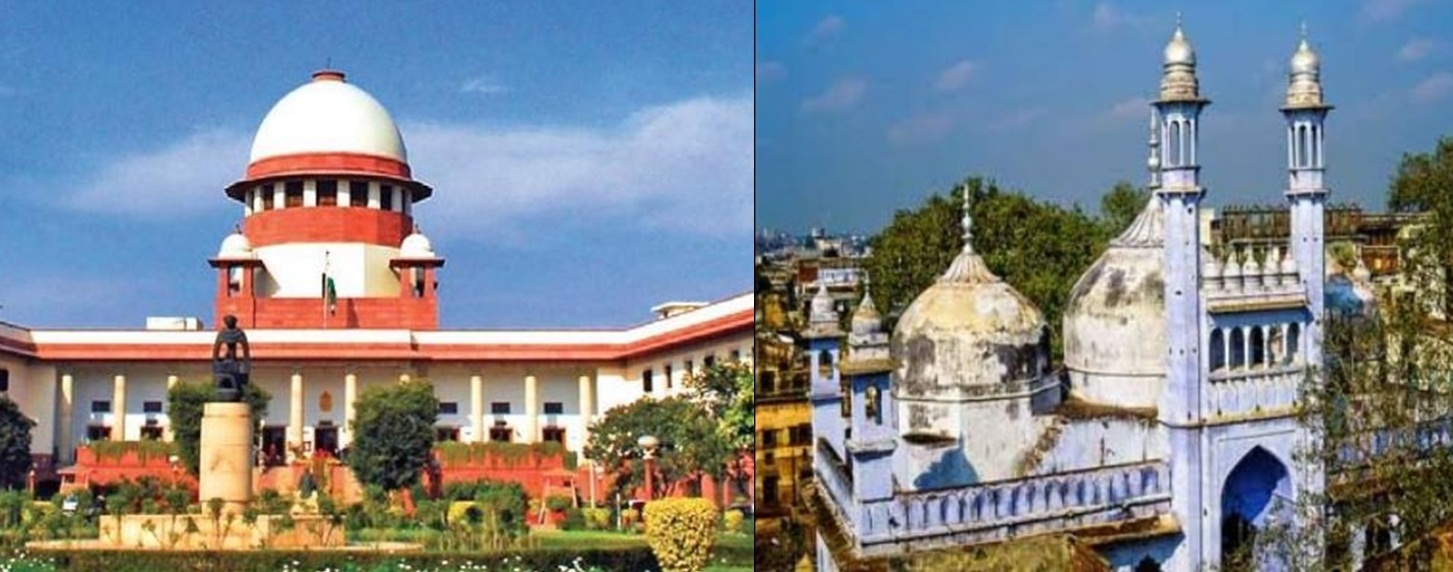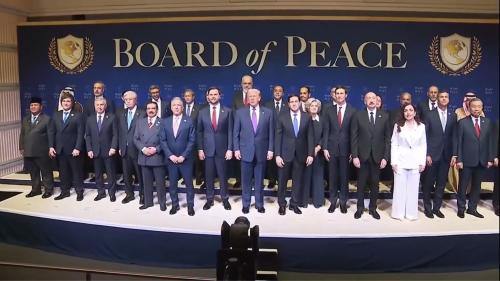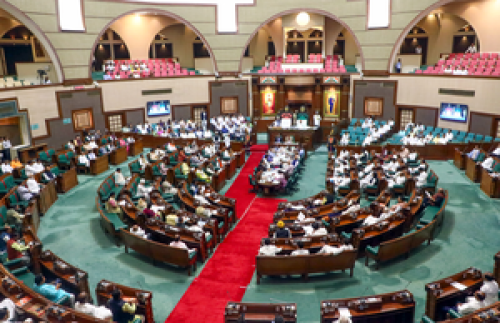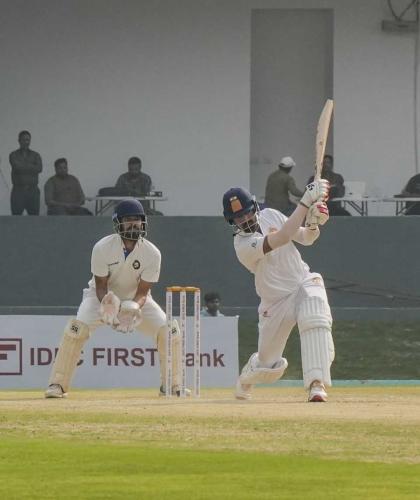New Delhi, May 17 (IANS) The Supreme Court on Tuesday directed the Varanasi administration to protect and seal the area where a "Shivling" was found, during a video survey, inside the Gyanvapi mosque complex, while also telling the authorities concerned to not restrict Muslims from entering the mosque to offer namaz. A bench of Justices D.Y. Chandrachud and P.S. Narasimha said: "The area where Shivling is found should be protected." The bench added that no manner of restriction should be imposed on Muslims entering the mosque to offer namaz or religious observances. Senior advocate Huzefa Ahmadi, representing the Committee of Management, the Anjuman Intezamia Masajid Varanasi, urged the top court to stay the proceedings before the trial court in Varanasi. The trial court's order for survey of the area by appointing Court Commissioners was questioned by the masjid committee, which moved the apex court challenging the Allahabad High Court's April 21 order. The high court had declined to intervene into the matter. The survey was conducted on May 14, 15 and 16. Ahmadi urged the bench to see the manner in which order is passed and added that it shows the lack of fairness. The order was passed in a suit for worship filed by Hindu devotees. The masjid committee opposed the suit saying it is barred by the provisions of Places of Worship Act, and contended that no tinkering with any place of worship as on August 15, 1947, was permitted. "How could you seal the premises; you are altering the status quo. It is almost sealing the property and also restricting the prayer inside the mosque on the basis a temple existed.." he said. Ahmadi also contended that the commission went on for survey, notwithstanding that the top court was already seized of the matter and the trial court acted on an application for sealing of the premises without notice to the other side. "How can they seal the premises? There's a string of illegal orders," he said, seeking stay on the orders. He emphasized that the status quo is now sought to be altered, as entry of Muslims is restricted inside the mosque. Ahmadi argued all the orders passed by the civil judge were non est in the eyes of law and were in teeth of the top court's judgment in Ayodhya case, where it interpreted Section 3 and 4 of the Places of Worship (Special Provisions) Act, 1991. Ahmadi said: "It is a bit too dangerous to allow the suit to be heard over there. All orders passed by the trial court were patently without jurisdiction." The bench told Ahmadi if a "Shivling" has been found, then balance needs to be maintained. "We will direct the District Magistrate to ensure protection of the place without restricting Muslims from praying," it noted. The bench modified the trial court's order which ordered sealing of the area, where the "Shivling" was found, and barred entry of Muslims over there. Solicitor General Tushar Mehta, representing the Uttar Pradesh government, said: "The area where Shivling is found, it should be protected, suppose someone goes there and touches with feet, there will be law and order problem." The top court did not allow the plea for use of wuzukhana -- a place for washing hands, feet, and face before offering prayers -- where the 'Shivling' has been purportedly found. The top court was informed that advocate Hari Shankar Jain on whose plea the trial court passed ex parte order on May 16 had developed some health issues and he was currently admitted in a hospital at Varanasi. The masjid committee contended that the suit is all about changing the character of a shrine which is a mosque, and this is not maintainable. However, the top court cited that the suit filed before the Varanasi court was not title suit but one for injunction against worship at 'Shringar Gauri'. The top court has issued notice on the plea filed by masjid committee and scheduled the matter for further hearing on May 19.
SC orders protection of 'Shivling' found in Gyanvapi mosque, removes bar on Muslims' entry
- by Rinku
- May 17, 2022 2 minutes

Supreme Court and Gyanvapi Mosque.











